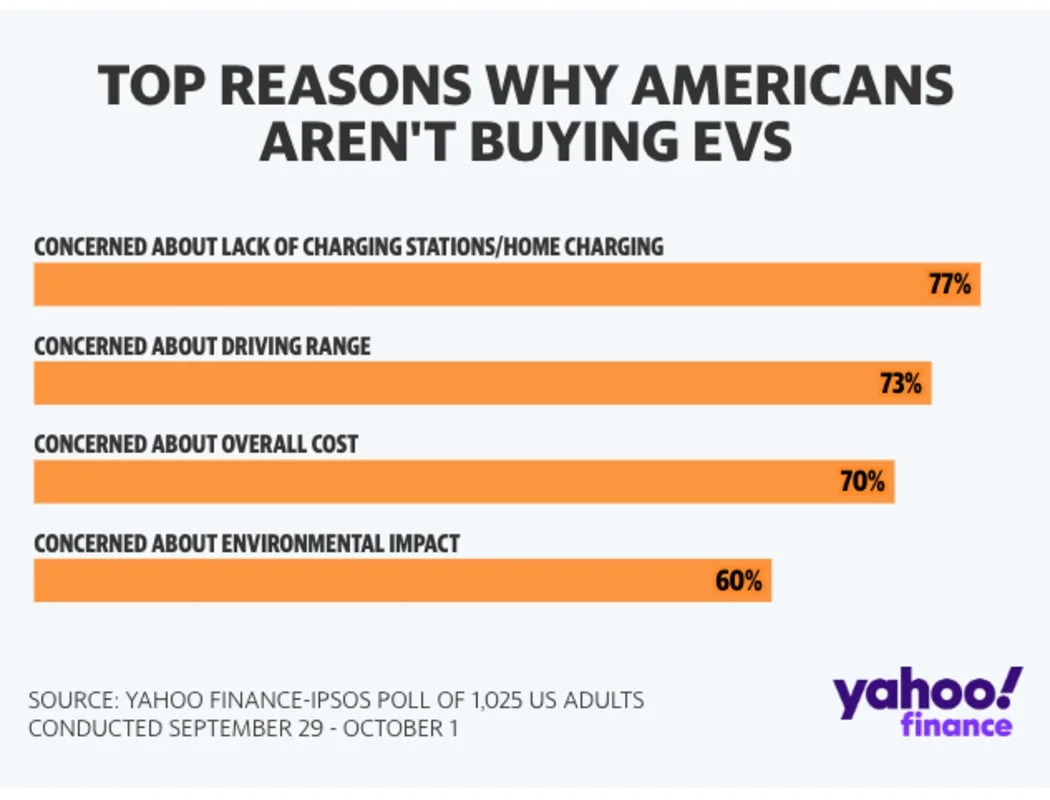America's EV charging network is growing but not fast enough
In a report, the White House released new figures on the build-out of the nation’s EV charging network, a small positive development in what is typically a sore spot for EV adoption.
In its third quarter update, the Joint Office of Energy and Transportation revealed there are over 192,000 publicly available Level 2 or DC charging ports in the US, an increase of approximately 9,000 ports from Q2, though down from the 13,000 ports added in Q2.
The nation’s charging infrastructure includes mostly privately owned networks, though the government, through the National Electric Vehicle Infrastructure (NEVI) program, is funding this build-out as well as state initiatives to increase publicly owned chargers.
President Joe Biden has put tremendous political capital into the EV transformation of the US, and part of that is a $7.5 billion build-out of the nation’s EV charging infrastructure. Through the use of public and private funding, the White House is targeting 500,000 new chargers by the end of the decade via the NEVI program.
The Joint Office of Energy and Transportation said the size of the nation’s charging network has doubled since the start of the Biden-Harris administration.
In March, the White House took some heat when it revealed only seven publicly funded charging stations had been built with 38 ports available for charging since the program began in 2021. The White House countered that it took its time with the program to “get it right,” and that the build-out would speed up as 2024 progresses.
“Currently, there are 69 NEVI-funded public charging ports in operation across 17 stations in eight states, more than twice as many operational NEVI ports as last quarter. A total of 40 states have released at least their first round of solicitations,” said the Joint Office of Energy and Transportation in the Q3 report. “Of these states, 29 have issued conditional awards or put agreements in place for over 2,800 fast charging ports across more than 700 charging station locations.”
Experts believe the delay is also down to state and local governments, who, despite NEVI funding, have little to no experience building out charger infrastructure.
Nevertheless, the build-out and sheer increase in the number of publicly available chargers is crucial to the administration’s goal of electrifying the nation’s fleet of vehicles. The White House’s new vehicle emissions target, though less severe than originally planned, still requires more EVs on the road by 2030.
And a huge component of that is charging. A Yahoo Finance-Ipsos poll conducted in late 2023 found that the main reason Americans are holding back from buying an EV is a lack of charging stations or home charging, with 77% of respondents stating that concern.

“I’m often asked if there is a magic number for the number of public charging stations we need in the United States. That’s a very difficult question to answer since so much of having an adequate charging infrastructure is predicated on the number of EVs on the road, access to home charging, use cases, etc,” said Brent Gruber, executive director of J.D. Power’s EV practice, to Yahoo Finance. “Instead, I look at the number of charging ports in terms of how well they’re satisfying EV owners with their availability.”
Gruber notes that while the number of charging ports in the US is growing, satisfaction with the availability of chargers is mixed. J.D. Power’s latest survey found satisfaction with DC fast charging availability rose by 20 points year over year (from 673 to 693), though the much more prevalent and less powerful Level 2 charger availability fell (from 593 to 583).
“With the satisfaction levels for both categories being as low as they are, we’re certainly not yet at the level we need,” Gruber said.
John Bozzella, CEO of the Alliance for Automotive Innovation, an automotive trade group, doubled down on that sentiment earlier this year, noting the administration’s EV adoption plans are at stake.
“America’s EV transformation goes hand-in-hand with reliable EV charging infrastructure. You can’t have one without the other, he said. “Getting more Americans comfortable with going electric starts with making sure they’ve got access — no matter their ZIP code — to reliable and ubiquitous public charging.”
Pras Subramanian is a reporter for Yahoo Finance. You can follow him on Twitter and on Instagram.
Click here for the latest stock market news and in-depth analysis, including events that move stocks
Read the latest financial and business news from Yahoo Finance



